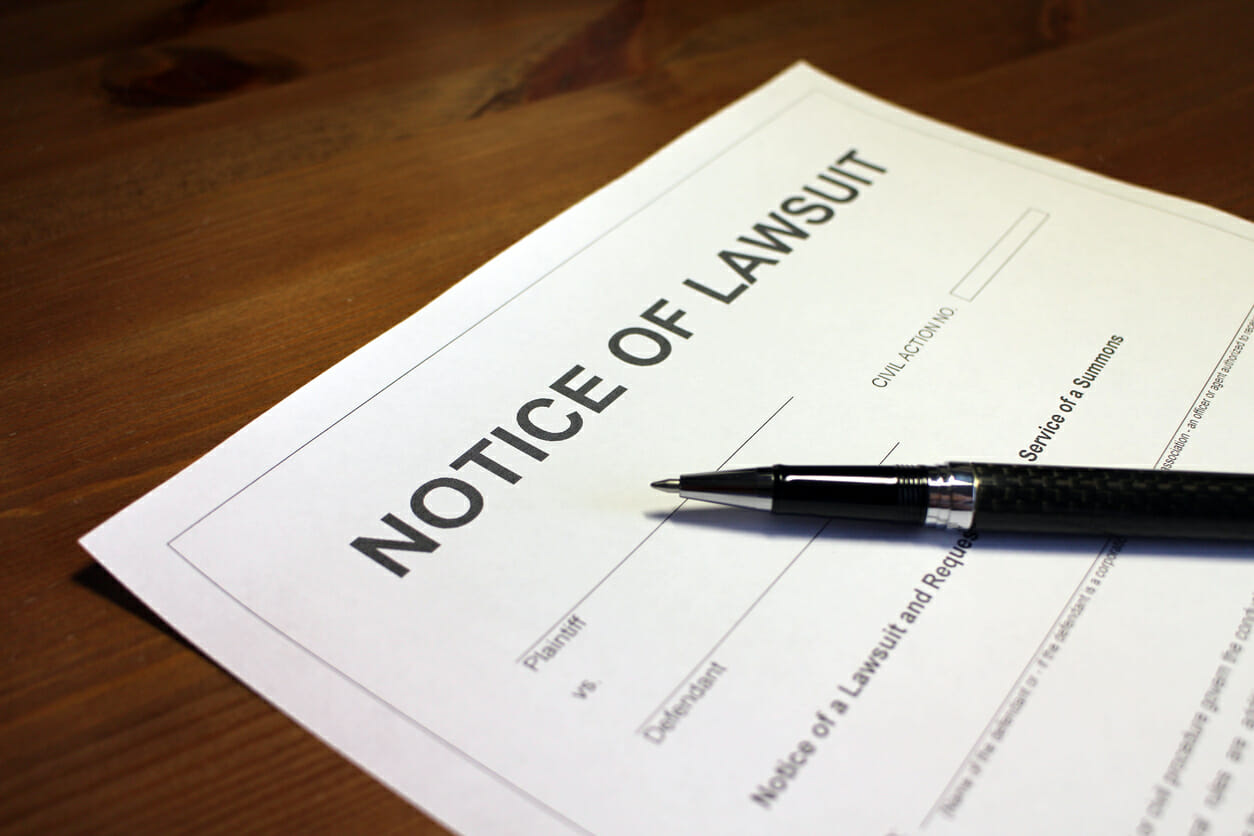Lawsuits can be costly, and they create a great deal of friction between a homeowner and the HOA board. Fortunately, few lawsuits filed against an HOA actually make it in front of a judge. This article will cover why an HOA might get sued, and what you can do if your association is hit with a lawsuit.
Homeowners can sue, but cases don’t usually end up in court
For all the lawsuits filed against HOAs, very few make it inside of a courtroom. That’s because litigation is wildly unpredictable in terms of time and costs, and most people don’t want to spend too much of either on a case they may not win. Legal fees can add up quickly, and the owner may realize that they will have to pay tens of thousands of dollars. Sometimes, pursuing the lawsuit just isn’t worth it.
Homeowners are allowed to sue their HOA if the board fails to perform its fiduciary duties and obligations stated in the governing documents, or if it violates local or federal laws. Owners have a right to expect the HOA to exercise ordinary care in performing its duties. If the HOA fails to act in a reasonable and prudent manner, an owner might have a negligence claim. For example, if an owner falls and breaks their wrist or ankle, and the HOA has not regularly cleared the ice from the common area sidewalks, the owner might have a successful case. Similarly, a judge may determine that a board has breached its fiduciary duties if the board members failed to maintain the common areas due to mismanagement of the development’s finances.
The chance of success in any HOA lawsuit will depend on the circumstances of each case, and the exact language of the governing documents.
Common reasons why HOAs get sued
Besides money and time, the other major reason why so many lawsuits don’t go to court is because the evidence against the HOA simply isn’t strong enough. Owners sometimes become angry that their request to build a deck was denied, or they don’t agree with a violation that was issued to them. But just because they don’t agree with the actions taken by the HOA board doesn’t mean the members acted inappropriately. Below are some of the most common reasons why owners sue HOAs.
Upkeep failures
When the association doesn’t maintain, repair, or replace an element or item that it is expressly responsible for maintaining, then owners have a right to seek out a resolution.
Denial of architectural change requests
Sometimes owners aren’t happy with the outcome of an architectural change request and will bring a lawsuit against the association.
Election disputes
Lawyers have seen HOA lawsuits due to election results. There may be a disagreement about the election process, or the actual results.
Violations
An owner may pursue a lawsuit if they believe they’ve been wrongly accused of breaking a rule or don’t believe the fine that was issued is fair. Sometimes, the dispute is about attorneys’ fees or late charges.
Board actions
Sometimes owners try to stop a board from doing something by starting a lawsuit. This frequently involves capital expenditures or additional services that the board wants for the association, but the owners don’t want to pay for it.
Pet disputes
There are several different ways that pets might spark an HOA lawsuit between a pet owner and the board.
What can a board expect?
If an issue between an owner and a board has existed for some time, board members won’t be surprised when they receive a preliminary letter about a lawsuit. But for something like a slip and fall, the board might be caught off guard.

Either way, the board should call their attorney and notify the insurance provider or the master carrier as soon as possible. The HOA attorney will make sure that any time-sensitive details are handled promptly, and it is usually a policy requirement to contact the insurance company when something like this occurs.
If the case is covered under the HOA’s insurance policies, be prepared to work with an attorney that the insurance provider appoints. That might be the association’s attorney, but that’s not often the case.
There may be a preliminary hearing scheduled, but that date could be weeks away. Defendants also have a reasonable amount of time to file their answers with the court. So, while boards do need to act quickly, once they’ve called their attorney and insurance provider, they do have some time to prepare for the next steps.
Can lawsuits be stopped?
As noted before, most lawsuits won’t move forward. Board members shouldn’t be too worried if they have acted in the best interest of the HOA and have followed their governing documents. When facing a lawsuit, some boards may question if they have become too stringent (or too relaxed) about enforcing rules and regulations, but boards should remember that they have some discretion. As long as they’re not acting arbitrarily, and are looking at each issue carefully, they can argue that an exception was (or was not) made based on the unique circumstances of the situation.
The board may very well settle the dispute with the owner before asking a judge to hear the case, or, the owner may decide to drop their lawsuit on their own.
A note about lawsuits against individual board members
HOA board members can be sued personally, but only within specific parameters. These types of lawsuits are rarely successful, so don’t panic if someone in your community brings a lawsuit against you. This happens more often than you might think, and, the association should have insurance (Directors and Officers liability insurance, or D&O liability insurance for short) for these types of claims.
Furthermore, most laws start with the presumption that a director is immune from liability for any actions they take in relation to their role as a board member, provided the actions were taken in good faith. This means a member won’t be excused if they have stolen from the association, but if they made an honest error that ends up costing the association money, chances are strong that they will not successfully be sued.
Board members are always encouraged to act “with the care an ordinarily prudent person in a like position would exercise under similar circumstances, and in a manner they reasonably believe to be in the best interests of the [association].” If they do this, then it is very unlikely that they will have to pay any expenses out-of-pocket, even if they generate legal expenses.
Almost all board members are volunteers, and taking on this role is a big responsibility. Without adequate protection from personal lawsuits, it would be very difficult to recruit owners to serve as board members. That is precisely why associations have insurance for directors.
Conclusion
HOA lawsuits are not uncommon. Different owners have different views and values, and sometimes, they don’t always align with those held by the board and association. Other times, an honest mistake or accident may lead to a lawsuit being filed against the association. The good news is that most lawsuits do not go before a judge.
If a lawsuit has been filed against your association, the best thing a board can do is contact their attorney and insurance provider. Don’t try to handle this situation on your own.























